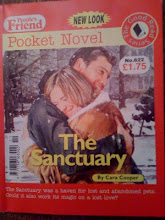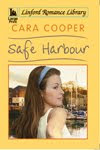Wednesday, 5 September 2012
How The Smallest Dog in Britain can help your writing...
I recently saw a report in the paper about Mini, reputedly the smallest puppy in Britain.
Pictured sitting on an iphone (you can see her by clicking this link) she isn't much larger than a mouse. I am constantly thinking about writing and what makes a story something we want to read and this tiny dog made me think. Of all the millions of puppies which are born every day, why did this one make national newspapers? Obviously because it is different. I am at present critiquing a manuscript. It is well written, it flows, there are some nice touches of humour, some excellent observation, some well drawn characters. But, it has one major problem and that is that neither the characters nor the plotline is remarkable. These are the sort of people you might have as neighbours and what is happening to them is what could happen to anyone any day. In other words it is too reflective of real life and generally people read to take them away from real life. They are seeking something out of the ordinary. This is such a shame because the writer has real promise. They just need to make their story a bit more like the story of Mini.
The reason that Mini the tiny puppy is remarkable is that she is different. If you can make your characters special, different, do extraordinary things, be extraordinary people you will be more likely to reach publication. Last night I watched the excellent British drama, 'Accused' written by the superb Jimmy McGovern, a BAFTA award winning British scriptwriter. Beware if you have recorded it to watch later, because there are spoilers coming up. In last night's episode the person we were most rooting for, a young prisoner who was ill rather than bad ended his life in his cell - a total shock, I didn't see it coming. His suicide had major repercusssions for the prison guard, a woman, who had asked one of her colleagues to keep the boy on suicide watch. The programme had me on the edge of my seat because the characters were remarkable. Faced with difficult situations, they made extraordinary decisions - in the end the prison officer released a new young prisoner in her charge because she finally cracked and believed that the prison, was an unsafe place. One thing you must do however, is make these untoward actions believable. The boy who took his life had lost his mother, become ill and ended up in prison. The prison guard had been betrayed by her colleague and the system. Both characters had motives for acting the way they did. Build your situations and characters carefully so that their actions fit with their personalities and echo their situations. This series involved crime and high drama. But even the gentlest of romances needs to have something out of the ordinary to make it remarkable enough for the reader to keep turning that page. Make it real, but make it remarkable too...
Subscribe to:
Post Comments (Atom)














8 comments:
Uh oh...
Great advice, Cara. My brain is whirring as I type this. Thank you.
Laura :-)
What a great post, Carla - thank you! I also saw The Accused you mention as well as the brlliant Sean Bean episode. I think Jimmy McGovern is a genius. In fact, his drama, The Lakes, was so powerful that some of the scenes have stuck in my mind forever and inspired the inciting incident of my June 2013 release. I must admit that while I don't mind reading about 'ordinary' people in short magazine stories, I really have to get a fix of escapism and thrills in my fiction. As you say the backdrop can be mundane but the characters and situation must be extraordinary.
Absolutely.We can't tell what's going to happen next in life, so stories should constantly surprise us too.
Thanks for this, Cara. Hope you sort out your tutee's manuscript and she really takes on board your wise advice.
Hi Laura, brain-whirr is something I suffer a lot with, especially when I have a new story brewing! Phillipa, I will check out The Lakes and see if I can get it on DVD. Have just watched another of Accused in iplayer - all good stuff. I agree Carol, it's good for a writer to surprise us. I do also realise that some authors write brilliantly about the mundane, and it is their ability to observe and describe simple every day things. However, they are few and far between and although they can be wonderful a constant diet of the every day is not the reason I personally read fiction!
What a cute puppy! Great post Cara and lots to think about. It's the twists and turns and the character's reactions to situations which make a reader want to read on.
Great advice, Cara. My mind is always whirring and thinking about the next plot or character. It's so difficult to get these things right.
Just saw your name on Diana quincy's blog, congratulationsxx
What you say is absolutely right, of course. No story should have a predictable ending. Or an unnecessarily cosy one. But a writer has to be cautious about creating an unexpected ending which becomes unbelievable in view of what has already happened, and the nature of the characters, their strengths and limitations. Everything has to be believable, but at the same time unexpected. And it is important to create sympathy for the characters to whom bad things happen or could happen. Actually writing all this down I get the feeling that you have already covered it all in what you have said!
Post a Comment